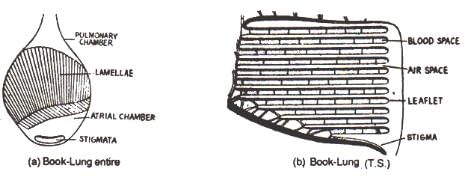UPSC Exam > UPSC Tests > Test: Respiration - 2 - UPSC MCQ
Test: Respiration - 2 - UPSC MCQ
Test Description
10 Questions MCQ Test - Test: Respiration - 2
Test: Respiration - 2 for UPSC 2025 is part of UPSC preparation. The Test: Respiration - 2 questions and answers have been prepared
according to the UPSC exam syllabus.The Test: Respiration - 2 MCQs are made for UPSC 2025 Exam.
Find important definitions, questions, notes, meanings, examples, exercises, MCQs and online tests for Test: Respiration - 2 below.
Solutions of Test: Respiration - 2 questions in English are available as part of our course for UPSC & Test: Respiration - 2 solutions in
Hindi for UPSC course.
Download more important topics, notes, lectures and mock test series for UPSC Exam by signing up for free. Attempt Test: Respiration - 2 | 10 questions in 10 minutes | Mock test for UPSC preparation | Free important questions MCQ to study for UPSC Exam | Download free PDF with solutions
Detailed Solution for Test: Respiration - 2 - Question 1
Detailed Solution for Test: Respiration - 2 - Question 2
Detailed Solution for Test: Respiration - 2 - Question 3
Detailed Solution for Test: Respiration - 2 - Question 4
Detailed Solution for Test: Respiration - 2 - Question 5
Test: Respiration - 2 - Question 6
Oxygen passes into the blood from the alveoli by a process called :-
Detailed Solution for Test: Respiration - 2 - Question 6
Detailed Solution for Test: Respiration - 2 - Question 7
Test: Respiration - 2 - Question 8
The diffusion of CO2 across the alveolar membrane is 20 times faster than that of O2 because :-
Detailed Solution for Test: Respiration - 2 - Question 8
Detailed Solution for Test: Respiration - 2 - Question 9
Test: Respiration - 2 - Question 10
Carbon monoxide has greater affinity for haemoglobin as compared to oxygen by
Detailed Solution for Test: Respiration - 2 - Question 10
Information about Test: Respiration - 2 Page
In this test you can find the Exam questions for Test: Respiration - 2 solved & explained in the simplest way possible.
Besides giving Questions and answers for Test: Respiration - 2, EduRev gives you an ample number of Online tests for practice
Download as PDF




















